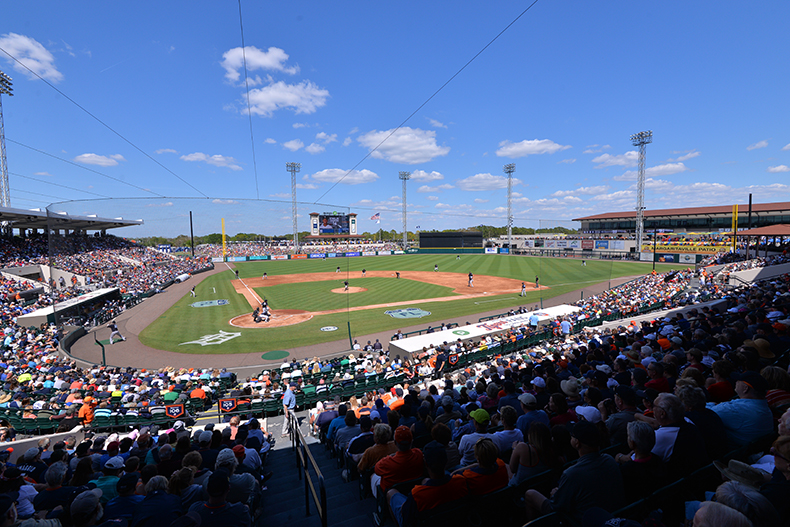Now that games have started and I can get some competition feedback from my players during lessons, I'm hearing a lot of pitchers mischaracterize their performance, and this is a topic definitely worth discussing.
Here's a typical conversation as we're playing catch to get warmed up in the cage:
Me: "Did you get to pitch last game?"
Them: "Yup."
Me: "Awesome! How'd you do?"
Them: "Ummm, not great."
Me: "Why not."
Them: "I gave up a lot of runs because they hit the ball off me."
Me: "Well I think that's a really good outing!"
Let's dig in.
The single most important thing a pitcher can do to help the team, at all levels of the game, is throw strikes. Period.
When a pitcher throws the ball in or near the strike zone, 3 positive things can happen for the team:
1) The umpire calls it a Strike and the team gets closer to getting an out.
2) The batter swings and misses and the team gets closer to getting an out.
3) The batter swings and hits it and our defense has a chance to get an out.
When the pitcher misses the strike zone by a lot, none of these things can happen and the team can't get an out.
But psychologically to young pitchers, giving up hits (or even just batted balls) can feel like failure. We want the other team to hit the ball! If that wasn't the case, then we wouldn't even put a defense out there on the field - it would just be the pitcher facing the batter on an empty diamond!
So much of what I talk about with Little Leaguers (and their parents) involves re-framing what success is on the baseball field. On the pitcher's mound, success is throwing as many strikes as possible and then not worrying about whether or not those pitches actually result in outs.
In youth baseball, we all know that many batted balls will end up not resulting in an out as young defenders are still improving their groundball, flyball, and throwing & catching skills. But this fact should not change the pitcher's goal, and ultimate definition of success: throwing as many strikes as possible. Every year they continue to play baseball their defense will get better and better (as they improve as well) and more and more balls put in play will become outs.
The Shortstop in Intermediates will make more plays than the Shortstop in Minors, just like the Shortstop in High School will make more plays than the Shortstop in Majors - as the defense improves getting outs will be easier for the Pitcher as long as he's throwing strikes and challenging the hitters to put the ball in play.
Here's a quick story from my first inning ever as a professional pitcher that illustrates this point. I was at mini-camp with the Tigers a couple weeks after getting drafted in 2003 and after a few days of practices and bullpen sessions, we started playing inter-squad games in the big stadium at the Tiger's Spring Training, and Lakeland Tigers, home ballpark.
Joker Marchand Stadium holds 8500 people - I had never stepped foot on a mound of a field that big - the stands at Brown had room for maybe 200 people.

Even though the stadium seats were empty (except for about a dozen of the Spring Training coordinators and front office guys there to get a first glimpse of their newest farm hands), it was intimidating and nerve racking and exciting at all once.
I can't really remember the first 2 batters I faced, I think 1 guy hit a groundball to Short for an out, I walked a guy, and maybe I struck the other guy out. It doesn't matter. It's the 4th at-bat of that inning that I still remember vividly and that we can learn from.
I got the batter to a 2-2 count and then threw my best pitch - a slider. It was a good one too, breaking hard down and away from the right handed hitter I was facing. 3 weeks earlier while still in college and facing an Ivy League hitter, that pitch was going to get a swing and a miss for the K every time, no doubt about it. But this day, facing a professional hitter, he not only didn't miss, he squared it up and launched it into gap in right-center.
3 weeks earlier with Ivy League Outfielders behind me (no offense to them), that same hit was 100% going to be a double, maybe more. But with a professional Centerfielder behind me, he rather easily got to the ball and made the catch - no big deal. In a split second I went from thinking "That's going to be a strike out and I'm out of the inning" to "Oh sh*t that's extra bases and the guy on 1st is going to score" to "Can of Corn, routine fly ball, my pro ERA is 0.00 - look out Comerica because here I come!"
When I tell my players baseball can feel like a roller coaster...I mean it!
Right away, I learned 2 things about pro ball. 1) The hitters were A LOT better than what I had faced in college and 2) that was ok because my defense was going to be A LOT better also.
Bringing this back to my lesson students getting frustrated when they don't strike everybody out; "Keep on throwing strikes, keep on challenging the hitters, continue to give your defense chances to make plays, and stay positive even when you give up hits and when errors are made! You are just one piece of the "Team Defense Puzzle," and your job is to get the ball near the strike zone as often as possible and the rest will take care of itself!"
Good Luck!
